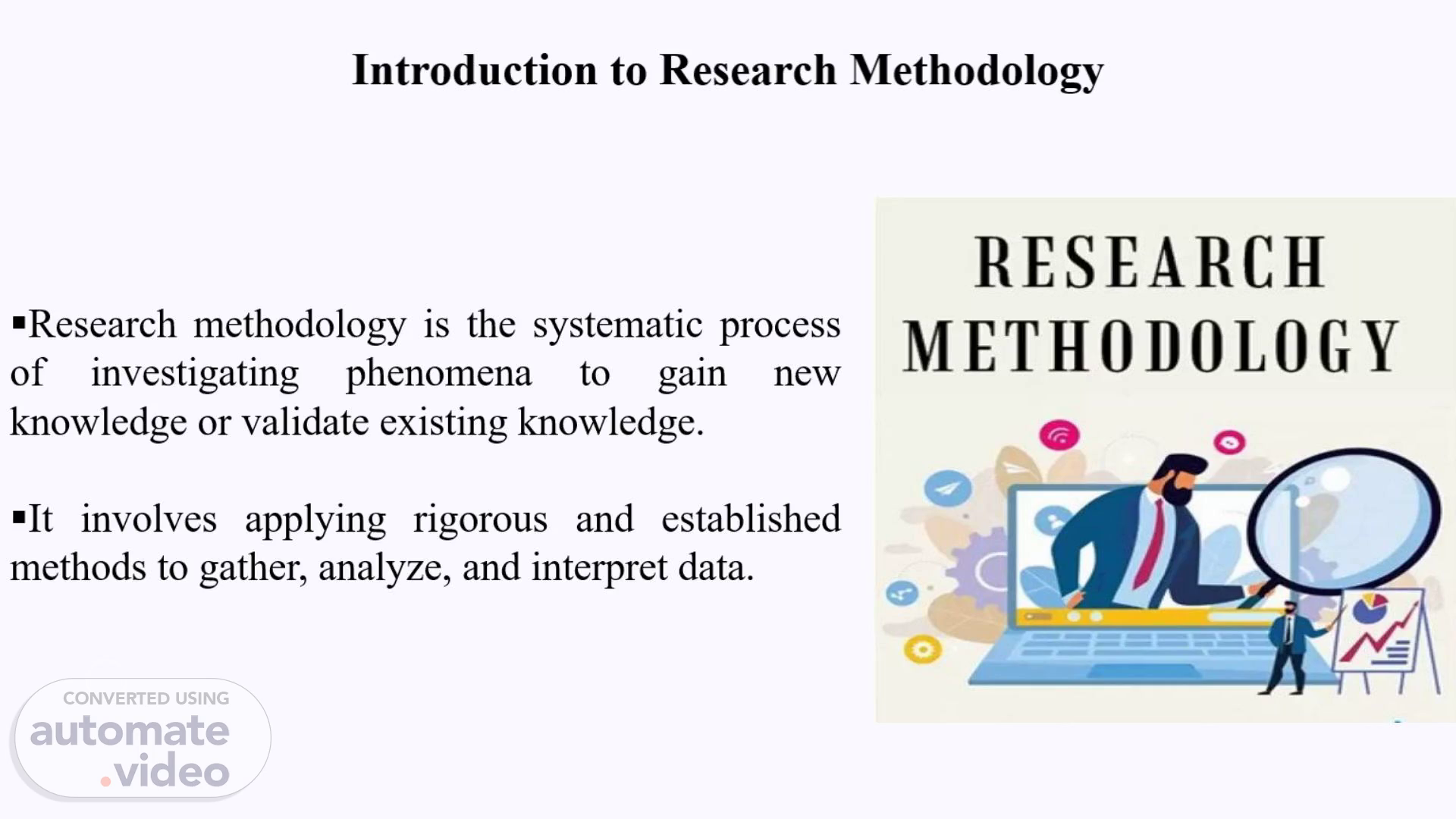
Page 1 (0s)
[Audio] Research methodology is a systematic approach used to conduct research ensuring that the methods applied are reliable and valid. It encompasses various components including research design data collection and data analysis each playing a crucial role in achieving accurate and replicable results. The methodology can be broadly categorized into quantitative methods focusing on numerical data and qualitative methods which emphasize non-numerical insights. Understanding these methodologies helps in structuring research effectively and making informed decisions based on evidence. Key aspects include defining the research problem formulating hypotheses and adhering to ethical standards to protect participants and ensure the integrity of the study..
Page 2 (29s)
[Audio] Here are the key steps in the research process: 1. **Identify the Research Problem:** Clearly define the issue or question you want to investigate. This involves understanding the context and scope of the problem and establishing a specific research objective. 2. **Conduct a Literature Review:** Review existing research and theoretical frameworks related to your topic. This helps to refine your research question understand what has already been studied and identify gaps in the literature. 3. **Formulate Hypotheses or Research Questions:** Develop testable hypotheses or specific research questions based on your understanding of the problem and literature review. These will guide your investigation and data collection. 4. **Design the Research Methodology:** Plan the research design including selecting appropriate methods for data collection and analysis. Decide on qualitative quantitative or mixed methods based on your research goals. 5. **Collect and Analyze Data:** Gather data using the chosen methods (for example surveys interviews experiments) and analyze it to draw meaningful conclusions. Ensure data is collected systematically and analyzed rigorously to address your research questions. 6. **Draw Conclusions and Report Findings:** Interpret the results of your analysis draw conclusions based on your findings and prepare a report or paper to communicate the results. This includes discussing implications limitations and recommendations for future research..